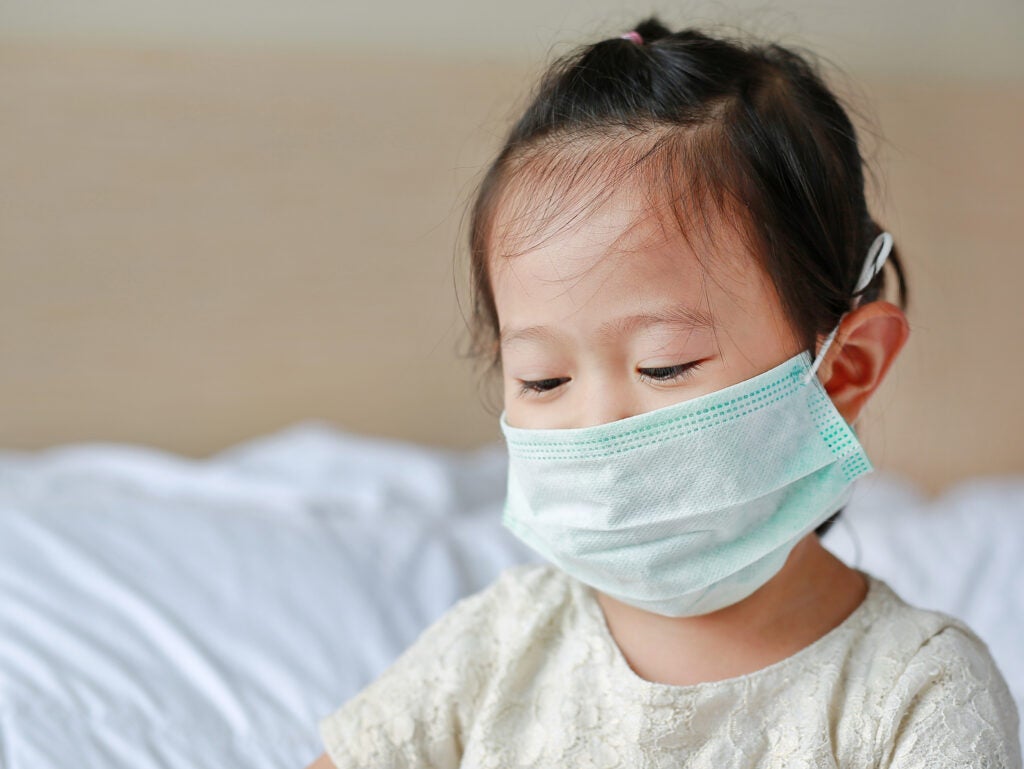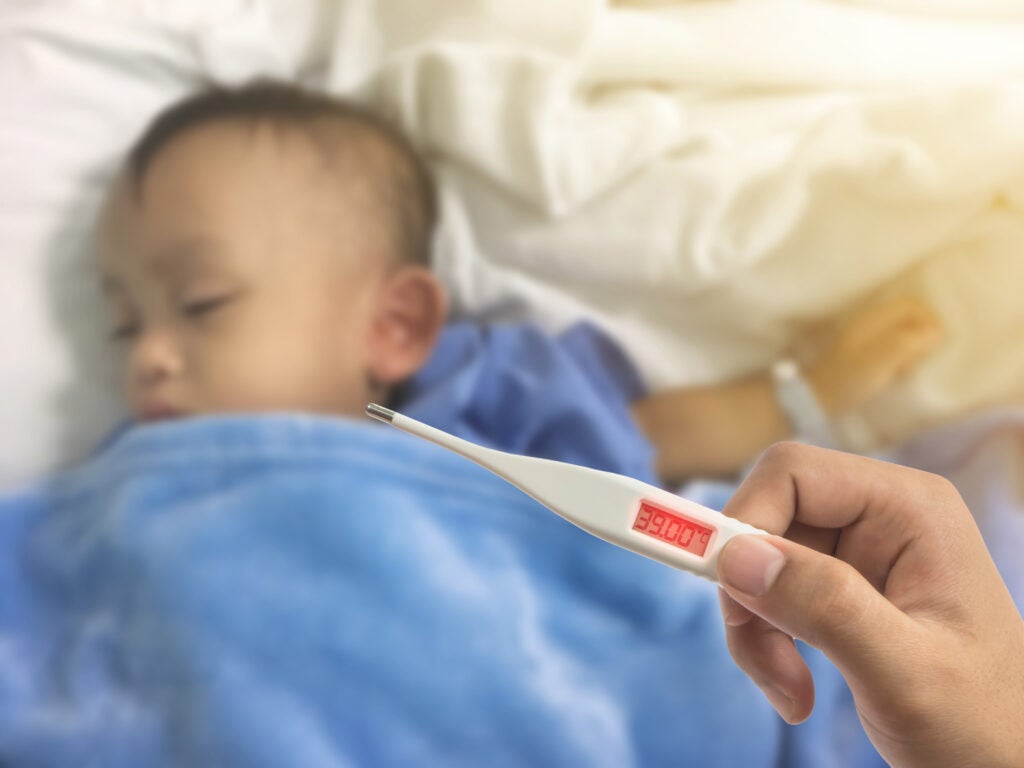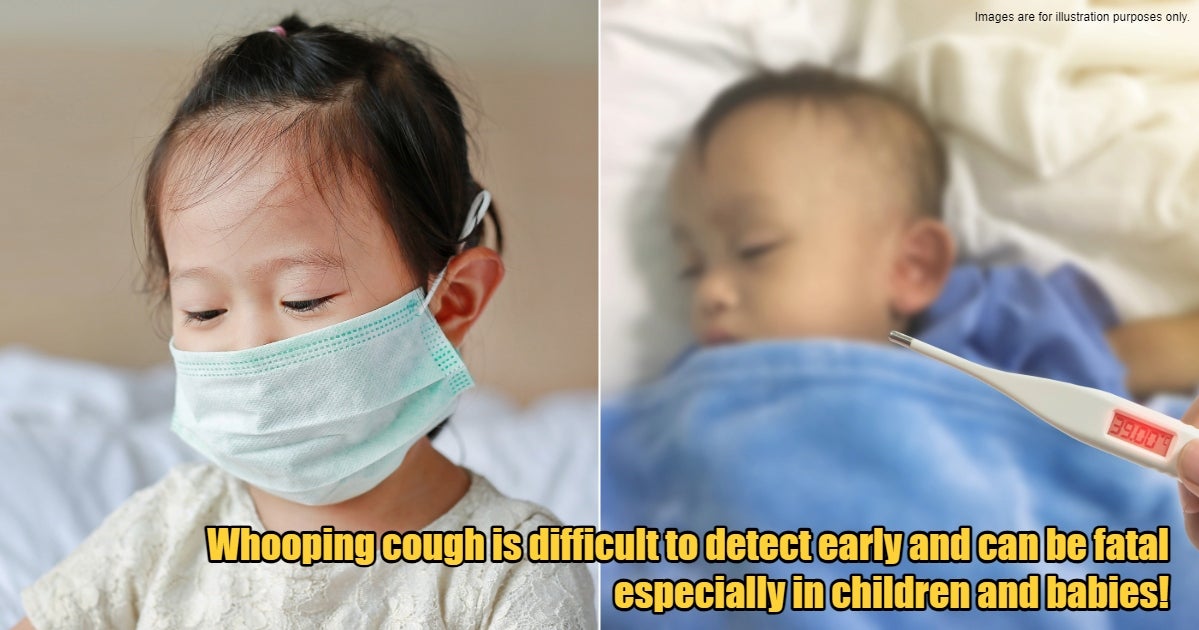In April of last year, it was revealed that Sabah had recorded a total of 76 cases of Pertussis (also known as whooping cough) so far at that time.
Now, it appears that there is a deadly whooping cough outbreak that is spreading globally!
According to NDTV World, the infection, which is difficult to detect early and can be fatal especially in children and babies, is making rounds across several countries, with deaths reported in China, Philippines, Czech Republic and Netherlands. There are also outbreaks in the US, UK and more.

This image is for illustration purposes only.
The Philippines have also shared that infection rates have become 34 times higher as compared to 2023, with 54 deaths recorded from January to March of 2024.
So, what is whooping cough?
Whooping cough is a bacterial infection of the lungs and breathing tubes. It spreads very easily and can sometimes cause serious problems. It’s important for babies and children to get vaccinated against it as they are the most vulnerable to it.
What are the symptoms of whooping cough?
Early symptoms can last for 1 to 2 weeks and usually include:
- Runny or stuffed nose
- Low-grade fever (less than 100.4°F or 38 Celsius)
- Mild, occasional cough (babies do not do this)
- Apnea (life-threatening pauses in breathing) and cyanosis (turning blue or purple) in babies and young children

This image is for illustration purposes only.
In its early stages, whooping cough appears like a common cold. Therefore, doctors may not suspect or diagnose it until the more severe symptoms appear.
1 to 2 weeks after the 1st symptoms start, people with whooping cough may develop paroxysms – rapid, violent, and uncontrolled coughing fits. These coughing fits usually last about 1 to 6 weeks but can also last for up to 10 weeks. Coughing fits generally get worse and become more common as the illness continues.
Coughing fits can cause people to:
- Make a high-pitched ‘whoop’ sound when they are finally able to inhale at the end of a coughing fit
- Vomit during or after coughing fits
- Feel very tired after the fit, but usually seem well in-between fits
- Struggle to breathe
Diagnosis and treatment
Doctors can diagnose whooping cough by considering if you have made contact with someone with the infection and by doing:
- History of typical signs and symptoms
- Physical exam
- Laboratory test of a mucus sample from the back of the throat
- Blood test

This image is for illustration purposes only.
Once diagnosed, doctors can treat whooping cough with antibiotics. Though, it is best to do this early, before the coughing fits begin.
Treating whooping cough early can:
- Make the illness less serious
- Help prevent spreading the bacteria that cause it to others
Starting treatment after 3 weeks of illness is unlikely to help even though most people will still have symptoms. By then, your body would have gotten rid of the bacteria, but the symptoms will still be there due to the damage already done to your body.
How can you prevent whooping cough?
There are vaccines and preventive antibiotics available, and it is important to practice good hygiene. Do cover your nose when coughing and sneezing, and clean yourself off properly after. You should also wash your hands with soap and water for 20 seconds or use alcohol-based hand sanitizer if soap and water isn’t available.
We genuinely hope everyone stays safe and secure as we face the outbreak.
Also read: M’sian Fakes Asthma Attack to Escape from Being Extorted of RM2K by Corrupt Police Officers in JB








































